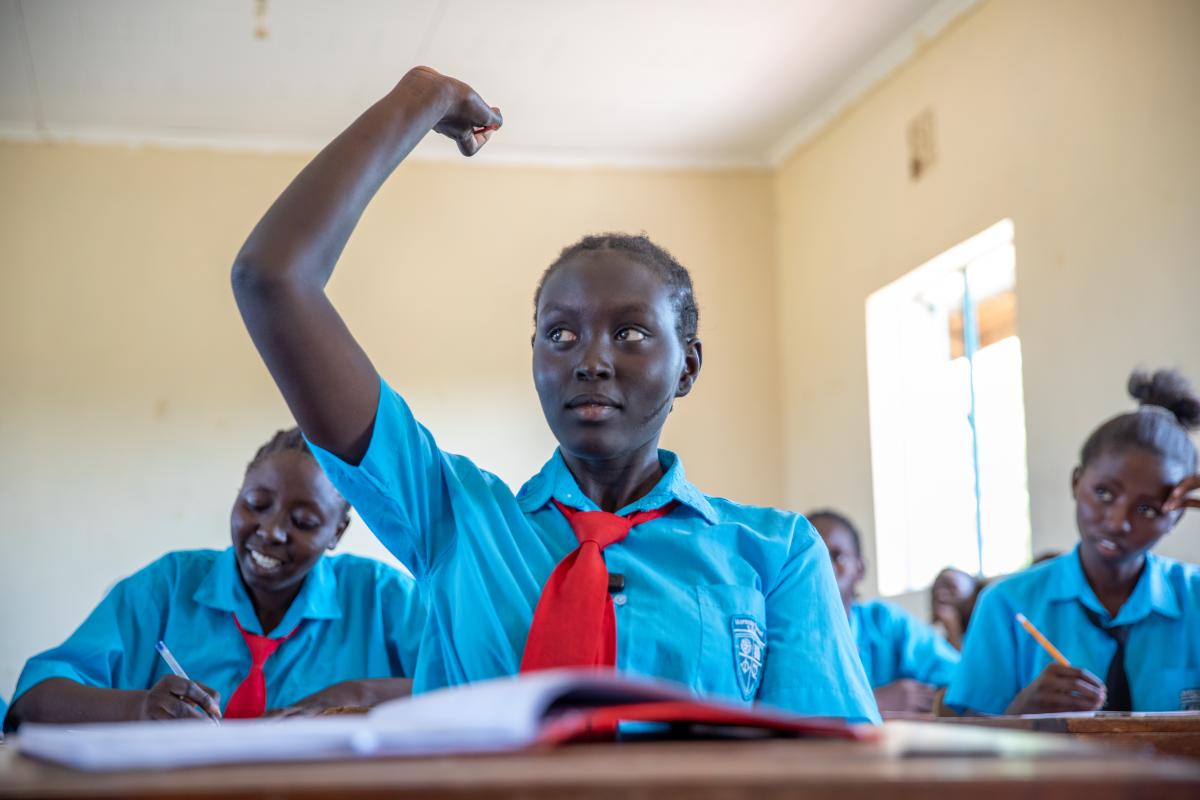This report covering the academic year 2022 to 2023, 65 refugee hosting countries are included in the analysis. Data from these countries indicate that the average gross enrolment rates for refugees for the academic year 2022-23 stood at 37 per cent for pre-primary, 65 per cent for primary, 42 per cent for secondary and 7 per cent for tertiary. The figures have remained stable or even fallen slightly compared to the Education Report 2023. However, as fewer countries were examined in the latest report, the figures are not directly comparable.
Five years on from the launch of UNHCR’s Refugee Education Strategy 2030, this year's report reveals that while remarkable progress has been achieved in global refugee education and enrolment, significant challenges remain. Without education, the future of an entire generation of refugee children and youth is jeopardized.

Data from key refugee-hosting low and middle-income countries – those that host the highest number of refugees – suggests that, in some, progress in primary education enrolment has been increasing, although refugee enrolment rates still trail behind the global average. In Uganda, for example, data indicates that the gross enrolment ratio was 73 per cent in 2018-19 and that this increased to 96 per cent in 2022-23 – more than 20 percentage points. “Back to school” campaigns have been strengthened at the beginning of the school term and deliberate investments made to expand primary education access through the construction of classrooms and reduction of pupil to teacher ratios. Increased education and school supplies are some factors explaining this increase.
But in other countries, the situation has not been as positive. In Türkiye, one of the countries hosting the highest number of refugees globally, the refugee gross enrolment ratio at the primary level has generally been high. Yet, there has been a slight decrease in gross enrolment from 81 per cent in 2018-19 to 77 per cent in 2022-23.
The report also shows that gender disparities in access to education for refugees persist, and more than 600,000 displaced Ukrainian children and youth remain out of school due to the ongoing war at home, as they begin their fourth disrupted school year.
When looking at pass rates across years, UNHCR sees consistently that refugee pass rates are high across both academic years – 2020/21 and 2022/23 – although some decreases have begun. Many factors affect learning, but one of the most obvious is the quality of teaching. UNHCR lacks sufficient data to know the proportion of teachers engaging with refugee learners who have acquired a minimum level of qualifications, but the scarce data suggests that the proportions are not very high. On average, for 13 reporting countries that provided data on the proportion of qualified teachers at primary level, the figure for those engaging with refugee learners was 67 per cent. Comparison to the national average proportion of teachers with the minimum required qualifications in primary education finds that the proportion can even be lower. For example, in Kenya, 42 per cent of primary teachers engaging with refugees have the minimum required qualifications, while the corresponding national average was 100 per cent in 2020.

“Education can be life-saving – the evidence is clear,” said UN High Commissioner for Refugees Filippo Grandi. “Education is associated with a lower likelihood of adolescent pregnancy and early marriage, giving girls the possibility to shape their own destinies. For boys, more years in education translates into a lower likelihood of risky behaviour, and hence into less violence and victimization. Unequivocally, education translates into better lives.”
UNHCR calls on hosting states, governments, donors and partners to continue and accelerate sustainable international cooperation and innovative partnerships to address the education needs of refugees by 2030. By boosting resources, expanding programmes and using effective tools to reach displaced or stateless children, we can build the foundations for a future that will enable refugee children and youth to learn, thrive and develop their potential.